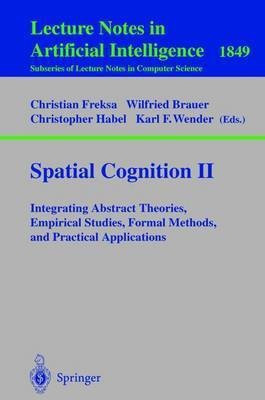Spatial Cognition II(English, Paperback, unknown)
Quick Overview
Product Price Comparison
Spatialcognitionisconcernedwiththewayshumans,animals,ormachinesthink about real or abstract space and also with the ways spatial structures can be used for reasoning. Thus, space is considered both, as an object of cognition and as ameans of cognition. Spatial cognition is an interdisciplinary research areainvolvingapproachesfromarti?cialintelligence,cognitivepsychology,ge- raphy, mathematics, biology, design, theoretical computer science, architecture, andphilosophy.Researchonspatialcognitionhasprogressedrapidlyduringthe past few years. The disciplines contributing to the ?eld have moved closer - getherandbegintospeakacommonlanguage.Theyhavefoundwaysofmerging theresearchresultsobtainedthroughdi?erentapproaches.Thisallowsfordev- oping more sophisticated hybrid approaches that overcome intrinsic limitations of the individual disciplines. Research on spatial cognition has drawn increased attention in recent years foratleastthreedi?erentreasons:(1)basicresearchdimension:thereisagr- ing awareness of the importance of spatial cognitive abilities in biological s- tems, speci?cally with respect to perception and action, to the organization of memory, and to understanding and producing natural language; (2) compu- tionaldimension:spatialrepresentationsandspatialinferencemayprovidesu- ablelimitationsto enhancethe computationale?ciencyforalargeandrelevant class of problems; (3) application dimension: a good understanding of spatial processes is essential for a wide variety of challenging application areas incl- ing Geographic Information Systems (GIS), pedestrian and vehicle navigation aids,autonomousrobots,smartgraphics,medicalsurgery,informationretrieval, virtual reality, Internet navigation, and human-computer interfaces. This is the second volume published in the framework of the Spatial Cog- tion Priority Program. It augments the results presented in Freksa et al. 1998.


